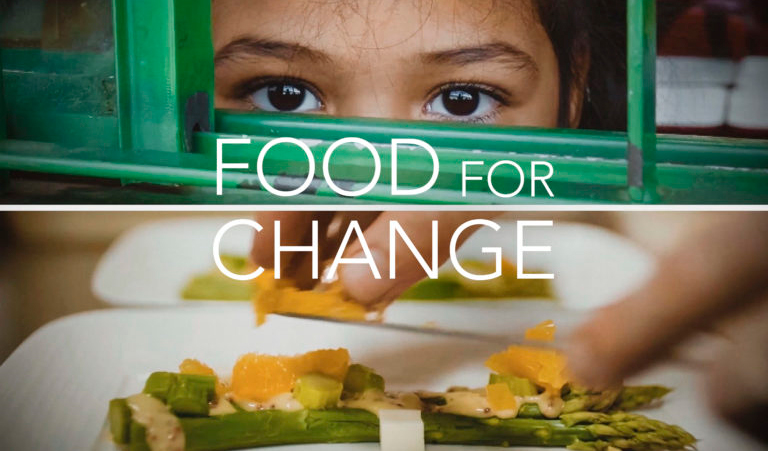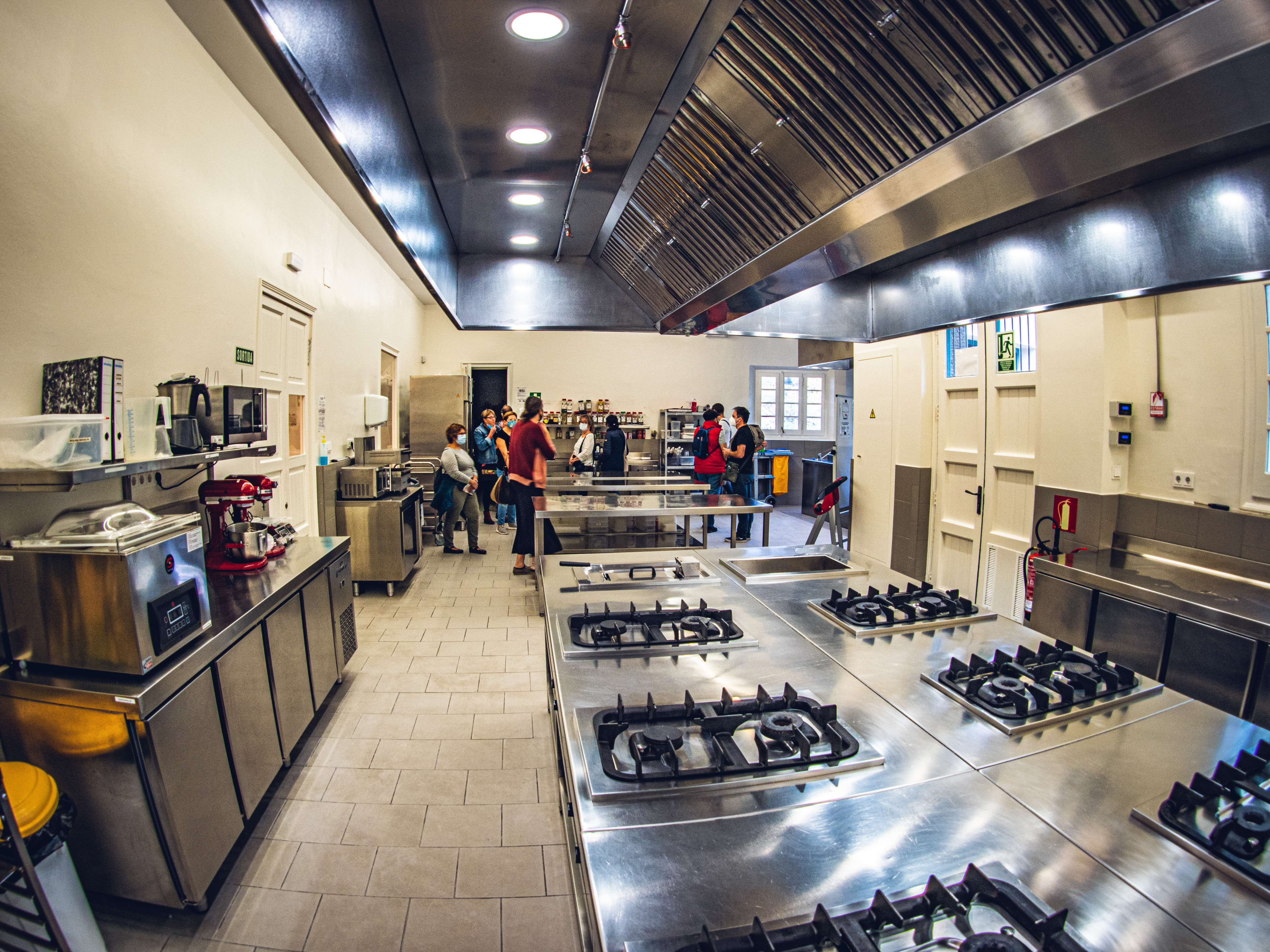In this programme you will find practical ways for moving towards a diet that includes habits which improve quality of life for ourselves and the people around us.
You learn how this affects our decisions, how we choose what we buy and where we buy it, all in a cheerful, fun and creative way.
We discover how to improve our surroundings and our inner selves, in order to feel full of life.
Our food choices have an impact on the environment; we review various diets (carnivorous, omnivorous and vegetarian) and finally focus on the plant-based diet.
Sustainable Food Citizen Week
Video resum de la Setmana Ciutadana de l'Alimentació Sostenible 2021
The activities of the Sustainable Food Citizen Week
Sustainable Food Citizen Week provides an opportunity to understand the relationship between food habits and cross-cutting aspects such as the climate emergency, local economic development, culture, politics, social rights and health. A week dedicated to citizens, in which you will achieve knowledge, reflection and debate about the main issues of the following activities.
Gastronomic heritage
- October 18th - 18.00 HBetevé broadcastingTelevised cooking workshop
- October 19th - 18.00 HBetevé broadcastingTelevised cooking workshop
How can you adapt sustainable food to healthy living?
Batch cooking consists in cooking for the whole family and investing a little time so you can make nutritious everyday meals, at home and for your lunch box.
BREAKFAST: habits as simple as a good glass of water, with sea water and lemon. Breakfasts such as shakes or smoothies, which you can warm up in winter. You will discover recipes such as rice pudding and pear, quality-bread sandwiches and an omelette made from organic eggs.
LUNCH: important notions on how to structure a dish with different groups of foods. A dish is not the same for a teenager as a middle-aged person. You can cook the same for all the family but put in what each person needs. You should always add vegetables in season, wholemeal carbohydrates, some raw vegetables, sprouted and fermented foods, etc. You will discover recipes such as baked pumpkin with curry; lentils cooked with adobo, sprouted ... and seeds; chickpeas with prawns; wholemeal rice with mushrooms; and lettuce head salad with carrot, olives and chopped chives. Wholemeal pasta with courgettes, mushrooms, squid with carrot and beetroot.
EVENING MEAL: an evening meal or supper should be light and eaten as early as possible. You will discover recipes such as pumpkin, sweet potato and oatmeal soup; vegetable pudding with carrot and broccoli; fish soup with noodles, and grilled fish in a sauce.
- October 20th - 18.00 HBetevé broadcastingTelevised cooking workshop
Getting children away from processed food as much as possible.
At home, we can organise menus very quickly, using fresh and seasonal local produce.
Not forgetting breakfasts and snacks and their natural desire for sweet food; we offer some great solutions.
Waste vs Good use
- October 14th - 19.30 HPlaça de Sant JaumeShow
The start off the week will be a chorus, musical, and participative. Having their say will be the real heroes of sustainable food, those involved in the food cycle: the fishermen, drivers, chefs, farmers, ranchers, market vendors. The speech will be intertwined with the large mechanical orchestra of Cabo San Roque, distributed in the form of a sound mural in front of the City Hall, along with the active participation of the public, in a collective musical creation composed especially for the occasion. A show that highlights all the participants behind the food supply network and gives them a voice.
- Scenography and musical composition: Cabo San Roque
- Stage direction and coordination: Edi Pou
- Idea and concept: Virginia Angulo / Martín Garber
- October 16 at 11:00hParc de la BarcelonetaTalk
Presentation of the guide that provides readers with ideas, examples and lines of action for initiating better food-use actions in the city's neighbourhoods, either in the form of food networks, better food use meals or other formats.
Guide authors: Espai Ambiental Cooperativa and Associació Cuchara. Published by Barcelona City Council. - October 16th - 11.30 HParc de la BarcelonetaTalk
Presentation of the Pont Alimentari [Food Bridge] project, promoted by Rezero and the Resources Bank Foundation since 2015, with the aim of reducing food waste in the retail, catering and restaurant food-distribution sector, creating a network for interaction and better food use among donor companies and recipient organisations supporting vulnerable groups.
Urban rurality and biodiversity
- October 16th - 13.00 HJardí dels TarongersTalk
“Repoblem” [Repopulating] is a social network initiative to connect towns and villages suffering from depopulation with people who are keen to live in those villages.
“Repoblem” disseminates campaigns and offers from town councils who wish to attract new inhabitants, offers of housing, the transfer of businesses and jobs in towns or regions which are suffering from depopulation. It also disseminates pleas from people who are looking for a place in the rural world to begin or modify their life projects. In short, it makes social media act as such: networks that connect people and towns to help reverse depopulation and rebalance the country, in terms of people, services, activities, infrastructures and political clout. - October 16th from 13.00 to 14.00 HPlaça ReialShow
Agroecology and family circus show.
“The land is full of plastic and GMOs and agrochemicals are threatening us. Luckily, we have an endangered species called Pagès… ” - October 16th - 13.20 HJardí dels TarongersTalk
Want to discover how to build a community allotment as opposed to the conventional model of individual plots?
Based on the experience of the PiA allotment, the aim is to encourage a debate on ruralising the city.
Includes image projection.
Ecological footprint
- October 17th - 20.00 HPlaça del ReiScreening
Recovering the earth’s natural capacity to store carbon and sustain life could be one of the most effective ways to combat climate change.
Therefore, it is necessary to recompose all the stages of this complex framework, a task that many people are promoting through different initiatives around the world. This documentary shows us that the answers to environmental problems lie in nature, literally beneath our feet. - October 17th - 20.00 HPlaça ReialShow
At the improshow we play with knowledge about food, sustainability and the climate emergency. We’ll be improvising everyday situations connected with sustainable food and local organisations, through humour and based on audience suggestions.
An innovative experience in which the audience will become the authors of stories that are surprising, exciting and fun. - October 18th - 22.00 H (variable frequency programming betevé)Betevé broadcastingDocumentary film season
Our plate is our most powerful tool to fight global warming and protect the planet. Our diet currently plays a very significant role in the dangers that threaten our planet. But there is hope. Investigative journalist Benoît Bringer travels the world looking for men and women who are producing a new food model, one that is respectful of both humanity and nature. This documentary gives us hope and shows us how each of us can be an agent of change and develop recipes for an economically viable food transition.
This activity is part of the Betevé documentary film series that includes the films Fermentación espontánea, Taste the waste, Food for change and Il mare piange.
Proximity
- October 17th - 16.00 HParc de la BarcelonetaShow
This show reflects the result of the last fifteen years this quintet's career, in which they have further explored their own style using organic, natural instruments with a grass-roots and contemporary language.
The concert revolves around organic instruments made from materials found in nature. Once they have been crafted, respecting the natural material, they generate melodies with a unique sound.
The stars of the show are the oak-wood and slate txalapartas, percussion instruments using wood from the desert and pipes. We will also hear a clarinet made from bamboo, whose sound creates atmospheric base lines that enhance the other instruments.
- October 17th - 17.30 HParc de la BarcelonetaRound table
Challenges and opportunities for multiplying and consolidating transformational food networks
There has been a significant increase in initiatives, over the last few years, which attempt to facilitate and ensure widespread access to organic and local food, taking the needs of the area's farmers into account. Central purchasing bodies, farmers’ distribution networks and new consumption cooperatives with shops (also known as cooperative supermarkets) are just a few examples of these.
The main goal of these projects is to provide a greater diversity of consumer profiles with access to these types of products. To do that, they aim to overcome the obstacles that prices and physical accessibility represent. They also aim to help improve the viability of the initiatives of farmers who work with agro-ecological values and practices.The aim of the session is to discover various types of initiatives for distributing organic and local food and to reflect on what the key elements are that can help to multiply and consolidate transformational food networks. Taking part in this will be members of Germinando involved in GIASAT (Gestión Integral Agroecológica de los Sistemas Alimentarios Territorializados), VallaEcolid, the Barcelona Local Agri-Food Exchange Centre (CIAP), promoted by the Farmers’ Union, and the Quèviure and Economat Social cooperatives.
- October 17th - 20.00 HParc de la BarcelonetaScreening
Sixty years of standardised fruit and vegetable production and the creation of industrial hybrids have had a dramatic impact on their nutritional content. In the last 50 years, they have lost 27% of their vitamin C and almost half their iron. The tomato, for example: through multiple hybridisations, scientists are constantly producing redder, smoother, and firmer fruits. In the process, however, a quarter of the calcium and more than half of the vitamins have been lost.
The seeds that give rise to the fruits and vegetables we eat are now owned by a handful of multinationals, such as Bayer and Dow-Dupont. These multinationals produce their seeds mainly in India, where workers earn just a few rupees, while the company has a turnover of more than 2 billion euros. A globalised business where seeds are more expensive than gold. According to the FAO, 75% of cultivated varieties have disappeared in the last 100 years.
Loss of nutrients, privatization of life. This documentary presents the great monopoly of the industry on our fruits and vegetables.
More week
- October 24th from 11.00 to 12.30 HPrat de la Riba 71, Santa Coloma de GramanetVisit / Tour
This is project for changing the use of the Noucentista Canigó pavilion, at the Torribera complex, designed by architects Masó and Pericas. The building had mainly been used for the care and residence of mentally ill people: Now a new use is proposed for it as a restoration school. The project takes account of the original spaces and finishings and aims to emphasise the structure of the building’s Noucentista vaults and arches. The pavilion’s spaces are sufficiently versatile and generous for the new programme to be comfortably located there in accordance with current functional requirements. The interior treatment is very neutral, seeking the clearest and cleanest possible expression of the facilities.
- October 24th from 11.30 to 12.30 H and from 12.30 to 13.30 HFundació Joan MiróTalk, Culinary experience
Miró always had a carob pod from Mont-roig del Camp tucked in his pocket. Discover more about this local alternative to cacao, a superfood that’s been unfairly discredited in recent decades. Get to know the properties of carob, plus some of its secrets and a few quirky facts, and you’ll see tempting ways to make it a part of your diet, to strengthen the rural economy and at the same time avoid the progressive loss of cultivated land.






















